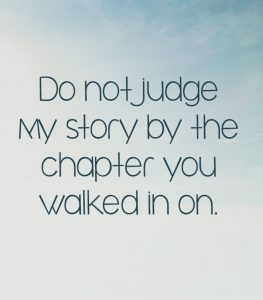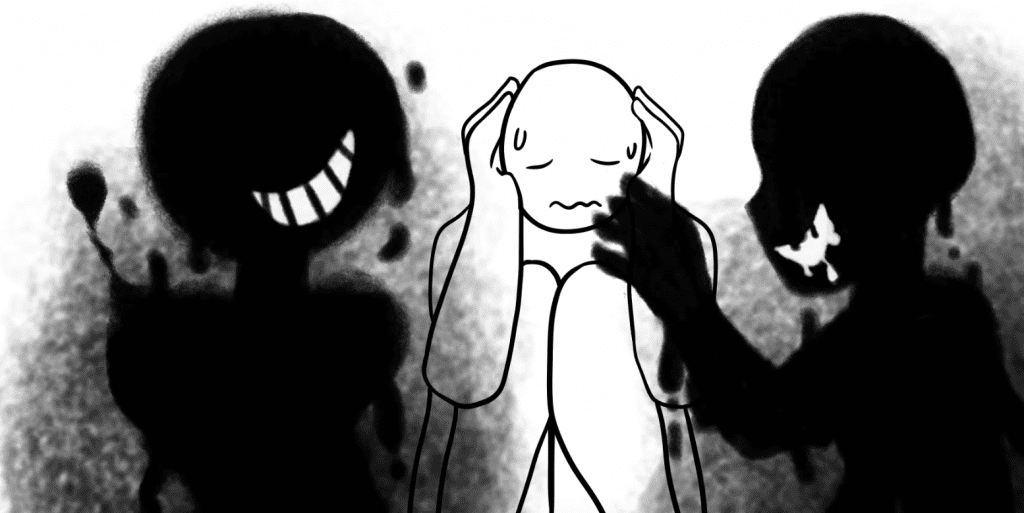The SOVA Project is happy to feature this blog post written by one in our team of fantastic SOVA Ambassadors—these are young people who help create meaningful blog posts from adolescents’ perspectives.
 Living with depression, anxiety, and other mental health issues can sometimes be taxing. I know I have come across this a lot—I feel down, anti-social, or just plain exhausted! While it’s true that we are starting to talk more about mental health conditions, lots of people still find it difficult to talk about what they are experiencing. It’s especially hard when you feel like you were doing so great the past few days and today you just feel like … ugh.
Living with depression, anxiety, and other mental health issues can sometimes be taxing. I know I have come across this a lot—I feel down, anti-social, or just plain exhausted! While it’s true that we are starting to talk more about mental health conditions, lots of people still find it difficult to talk about what they are experiencing. It’s especially hard when you feel like you were doing so great the past few days and today you just feel like … ugh.
I often don’t know what to say on my ugh days when someone asks me, “How are you doing today?” or, “Do you want to hang out later?” Most of the time I end up just saying something like, “I feel a little tired today—must not have slept well,” or, “I think I’m just staying in tonight, I have a lot of work to do!” Usually, what I really want to say is:
My depression/anxiety symptoms are acting up, and I’m just having a bad mental-health day.
I just feel like people can relate to tiredness and stress a bit more than a real confession of mental-health difficulties. And I don’t want to feel like I’m being a downer or burdening people with my current symptoms.
However, some friends of mine have recently started being completely open about their bad mental health days!
Continue reading Having a Bad Mental Health Day

 While the term itself may be new, staycations are the opportunity to take a break from reality while still living in it. How one specifically defines what a staycation is to them can vary, but so long as it’s somewhere familiar, involves a significantly relaxed pace, and does not involve the everyday routine, it’s a staycation.
While the term itself may be new, staycations are the opportunity to take a break from reality while still living in it. How one specifically defines what a staycation is to them can vary, but so long as it’s somewhere familiar, involves a significantly relaxed pace, and does not involve the everyday routine, it’s a staycation.  I feel that many times during a struggle or a time when we are transforming from a hard situation, others can judge.
I feel that many times during a struggle or a time when we are transforming from a hard situation, others can judge.
 This is my final year at college and I have been a little bit stressed knowing I have a bit less than two weeks until the school year begins. I feel unprepared and anxious for the year ahead. To help calm my nerves, I have been giving myself reminders and hopefully it can be helpful to share them with you!
This is my final year at college and I have been a little bit stressed knowing I have a bit less than two weeks until the school year begins. I feel unprepared and anxious for the year ahead. To help calm my nerves, I have been giving myself reminders and hopefully it can be helpful to share them with you! The violin is a beautiful wooden instrument with a rich tone and a wide range of pitch. It can have different musical voices depending on the techniques used. It is the first-ever instrument that I learned (the annoyingly squeaky plastic recorder doesn’t count!). I started violin lessons through my elementary school when I was in third grade. To be honest, I only started lessons to get out of being in class! When I first started playing, I was not very good. In fact, I was quite awful! When my bow hit the strings it sounded scratchy and out of tune. But once I started taking additional lessons outside of school I could see myself starting to improve.
The violin is a beautiful wooden instrument with a rich tone and a wide range of pitch. It can have different musical voices depending on the techniques used. It is the first-ever instrument that I learned (the annoyingly squeaky plastic recorder doesn’t count!). I started violin lessons through my elementary school when I was in third grade. To be honest, I only started lessons to get out of being in class! When I first started playing, I was not very good. In fact, I was quite awful! When my bow hit the strings it sounded scratchy and out of tune. But once I started taking additional lessons outside of school I could see myself starting to improve.

 Living with depression, anxiety, and other mental health issues can sometimes be taxing. I know I have come across this a lot—I feel down, anti-social, or just plain exhausted! While it’s true that we are starting to talk more about mental health conditions, lots of people still find it difficult to talk about what they are experiencing. It’s especially hard when you feel like you were doing so great the past few days and today you just feel like … ugh.
Living with depression, anxiety, and other mental health issues can sometimes be taxing. I know I have come across this a lot—I feel down, anti-social, or just plain exhausted! While it’s true that we are starting to talk more about mental health conditions, lots of people still find it difficult to talk about what they are experiencing. It’s especially hard when you feel like you were doing so great the past few days and today you just feel like … ugh. Sometimes I feel like I have no friends.
Sometimes I feel like I have no friends. There’s a myth that has circulated for a long time that we have somewhere between 50,000 and 80,000 thoughts per day. This would mean that each minute, we’re thinking 35 to 50 thoughts. The reality is that nobody knows how many thoughts we humans have per day … but we certainly have many! And for those with anxiety and depression, a majority of those thoughts may be automatically negative.
There’s a myth that has circulated for a long time that we have somewhere between 50,000 and 80,000 thoughts per day. This would mean that each minute, we’re thinking 35 to 50 thoughts. The reality is that nobody knows how many thoughts we humans have per day … but we certainly have many! And for those with anxiety and depression, a majority of those thoughts may be automatically negative.